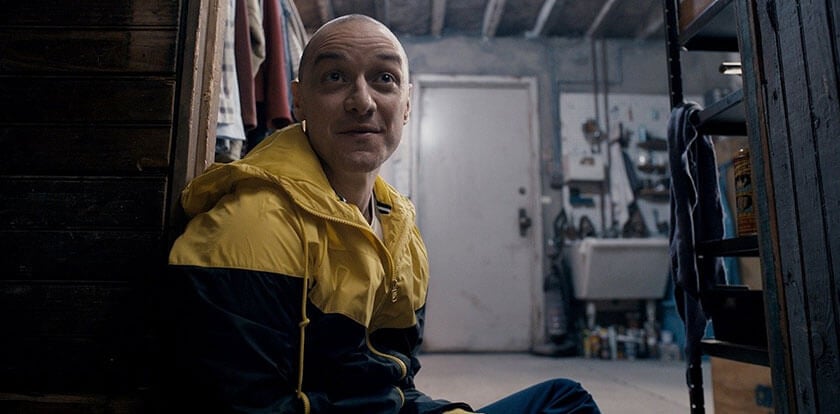Film
Split packs in the fun as it unleashes the beast
Split is a focused, creepy thriller from director M. Night Shyamalan, with a unique twist and a devilish sense of humour.
M. Night Shyamalan Spotlight
A cinematic examination of mental illness is often fraught with the kind of pitfalls that include misinformation and broad generalizations. Negative connotations can conjure a mental image for the audience that takes the reductive view that all these people are “mental,” and subsequently, the creative minds behind the film get a slap on the wrist from the medical experts. Suffice to say, you must walk a fine line to entertain the average filmgoer whilst respecting the fact that the one-size-fits-all model should not be associated with any mental conditions. It’s a relief then that M. Night Shyamalan’s thriller, Split, relies not on its antagonist’s malignant despair, but instead upon the film’s insistence on tense, thrilling popcorn-fare entertainment; it’s a film that constantly reminds you that you are watching a film.
Split begins with teenager and social outcast Casey (Anya Taylor-Joy) at a party after being pity-invited by classmates Claire and Marcia. Whilst waiting for their lift home from one of the girls’ father, they’re knocked unconscious and abducted by Kevin (James McAvoy), who imprisons them in a locked living space. It would be a familiar setup if it weren’t for the fact that Kevin isn’t really Kevin at all; he might be the threatening Dennis, he could be campy fashion designer Barry, the calculating Patricia, or any of the other 23 personalities that inhabit his mind. The enjoyment in Split comes from the interactions the girls have with Kevin’s multiple personalities, as escaping through sheer force alone won’t guarantee success.

The reason Split succeeds is due to Shyamalan knowing exactly what the focus of his story is, and he wastes no time in getting to the heart of it. Less than five minutes is spent establishing the setup and confinement, and this allows McAvoy and Anya Taylor-Joy to let their characters breathe. A subplot concerning Kevin’s psychiatrist, Dr. Karen Fletcher (Betty Buckley), threatens to adopt a more preachy stance on mental illness, as she attempts to share Kevin’s rare disorder with the rest of her medical peers, but this is wisely and swiftly overridden by her suspicions that Barry (the dominant personality) is being taken over by the more dangerous and shunned personalities of Dennis and Patricia. The tension heightens as the renegade personalities prophesize a dangerous and inhuman 24th personality in the form of the beast, creating the perfect cue for Casey and friends to escape their prison.
Much like his previous film, The Visit, Shyamalan instills a sharp sense of humour into the events of Split without jeopardizing the stakes. Light and shade flicker intrinsically throughout the film; in one scene, we witness a displeased Patricia holding a knife to Marcia’s stomach, whereas in another we experience Hedwig – a 9-year-old, naïve personality – perform an energetically demented dance to a lost-for-words Casey. Patricia’s mother-like quips and her sympathetic sighs (while a feminized McAvoy dons a cardigan and cups her/his hands) are as funny as they are sinister, and it’s for this reason that proceedings never grow stale.

The concept of Split lives or dies by the portrayal of Kevin and his personalities. Play it too serious and the character might offend; play it too funny and the story loses credibility, possibly turning into a comedy. Luckily, James McAvoy nails the character and the shifts with the tenacity and nuance the role demands. Transitioning effortlessly between personalities, McAvoy is the driving force behind Split. One scene sees Dennis pretending to be the previous dominant personality Barry as he attempts to evade Dr. Fletcher, to the dismay of the other personalities; it’s funny and creepy in a way that not many modern directors can pull off.
Casey proves a likable and determined protagonist as she goes head-to-head-to-head-to-head-to-head, etc., with Kevin’s inhabitants. Her flashbacks hint at a painful childhood, but these act merely to provide the resolution, and unfortunately, it comes off as contrived, not nearly as clever as it thinks it is. Again, like The Visit, Shyamalan struggles to inject a meaningful inner conflict into his protagonists, meaning though we side with them, we aren’t drawn to them as intended.

Despite these small issues, Split comes across as a fun thriller that never takes itself too seriously. James McAvoy brings a frenetic energy to his role, and he looks like he’s having the time of his life whenever on-screen. While it might not possess the quality of scares present in previous works like The Sixth Sense or Signs, Split is a focused, creepy thriller with a unique twist and a devilish sense of humour.


































